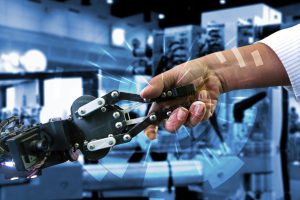
Artificial Intelligence (AI) is swiftly revolutionizing industries, including employment. As AI automates an increasing number of tasks, alters skill demand, and transforms workspaces, it is imperative for technology professionals to remain knowledgeable. Artificial intelligence positions are increasingly intricate, necessitating a combination of technical proficiency, adaptability, and insight. This article examines the influence of AI on employment, its advantages, and provides real-world examples and case studies that demonstrate these transformations. Technology workers must be equipped to leverage the potential of AI, and this essay will elucidate the essential elements they need understand.
The Ascendancy of AI Employment

The proliferation of AI employment opportunities has been exponential. A research from the World Economic Forum indicates that AI is projected to displace 85 million jobs by 2025, while simultaneously generating 97 million new positions. The primary distinction between the employment that AI eradicates and those it generates is in the nature of the activity involved. Positions characterized by repetitive work are susceptible to automation, but those requiring problem-solving, creativity, and emotional intelligence are more vital.
Prominent AI Employment Opportunities on the Ascendancy:
- Machine Learning Engineers: Experts who create algorithms enabling computers to learn and adapt autonomously, without direct programming.
- Data Scientists: Experts that study and understand intricate data to assist organizations in making informed decisions.
- AI Product Managers: Specialists responsible for the creation and execution of AI-driven products.
- Robotics Engineers: Specialists tasked with the design, construction, and maintenance of robots utilized in diverse sectors.
The Impact of AI on Employment
AI is not only generating new employment opportunities in the field of artificial intelligence, but it is also transforming conventional positions. In domains such as healthcare, AI systems aid physicians in diagnosing ailments via data analysis. In finance, algorithms powered by artificial intelligence enhance trading methods. This shift necessitates that technology professionals develop new competencies and adjust to evolving technologies.
Automation of Redundant jobs:
AI demonstrates proficiency in executing repeated jobs with precision and efficiency. Chatbots are automating customer care positions, while Robotic Process Automation (RPA) manages back-office duties like data input, enabling human staff to concentrate on higher-value tasks.
AT&T, a prominent telecommunications corporation, use AI to automate standard network maintenance activities, allowing its engineers to concentrate on intricate issues, hence enhancing service delivery.
Enhancement of Human Functions:
AI is progressively utilized to augment human abilities rather than supplant them. This enhancement is particularly apparent in sectors such as healthcare, where AI assists physicians by evaluating scans and forecasting illness progression, facilitating swifter and more precise diagnoses.
IBM’s Watson Health is an artificial intelligence technology employed in medical facilities to aid in cancer research, facilitating the creation of individualized treatment strategies for physicians.
Generation of Novel Opportunities:

AI is engendering totally new sectors and employment classifications. For instance, organizations are now employing AI ethics officers to guarantee that AI systems are equitable, transparent, and non-discriminatory towards any group. Moreover, there is a growing demand for AI trainers that enhance machine comprehension by providing data and rectifying errors.
Advantages of Artificial Intelligence in Employment
Artificial intelligence offers numerous advantages in the workplace. The following are few key advantages:
Enhanced Productivity: AI enables staff to improve efficiency by automating routine operations, thereby facilitating a focus on strategic decision-making and innovative problem-solving.
Case Study: Siemens, a global leader in electrification and automation, use AI in its plants to anticipate equipment failures prior to their occurrence. Consequently, the organization has reduced downtime and enhanced overall production by 20%.
Improved Decision-Making: AI delivers meaningful insights to businesses by rapidly and efficiently evaluating extensive data sets. This capacity enhances decision-making, particularly in data-driven sectors such as finance and marketing.
JP Morgan use artificial intelligence to evaluate financial contracts far more rapidly than human personnel. The AI technology, termed COIN, analyzes legal papers in seconds, minimizing errors and enhancing efficiency.
Customized Experiences: AI enables organizations to provide tailored experiences to clients. Utilizing AI-driven data analysis, enterprises may comprehend client preferences and provide customized products or services.
Netflix’s recommendation algorithm use artificial intelligence to propose films and television series tailored to a user’s historical viewing patterns, enhancing the platform’s engagement and personalization.
Job Satisfaction: Automation of repetitive jobs by AI enables people to concentrate on innovative, challenging, and more rewarding work. It can alleviate workplace stress and occupational burnout by undertaking monotonous tasks, such as data collecting and processing.
Obstacles and Factors for Technology Professionals
Image sourced from Yandex.com
Although AI employment and automation offer several benefits, they also pose obstacles that technology professionals must be prepared to confront.
Skill Deficiencies: As AI advances, the competencies necessary for engaging with AI systems are evolving swiftly. Professionals must remain proactive by acquiring knowledge in machine learning, data science, and AI development frameworks. Proficiency in programming languages like Python and R is increasingly vital for numerous AI positions.
Case Study: In India, the National Association of Software and Service Companies (NASSCOM) discovered that merely 40% of its staff was qualified for AI positions, prompting a substantial upskilling initiative.
Ethical Considerations:
AI systems should be developed in accordance with ethical principles. Technology experts must recognize the potential for bias in AI systems and strive to mitigate these dangers. Ensuring that AI systems are transparent, impartial, and equitable is essential for fostering confidence among users and stakeholders.
In 2018, Amazon encountered criticism after its AI recruitment tool was discovered to exhibit bias against women. The technology, trained on resumes provided over a decade, exhibited a bias towards male candidates due to the predominance of male submissions. This event underscores the significance of ethical artificial intelligence design.
Adaptability and Lifelong Learning:
The rapid evolution of AI technology necessitates that technology workers engage in continuous education. Ongoing education is essential to remain informed about the newest advancements and applications in AI.
Job Displacement and Workforce Transition:
A primary concern regarding AI is its capacity to displace employees. It is essential to recognize that although AI may displace certain employment, it simultaneously generates chances for workforce transition. Organizations and governments must engage in reskilling and upskilling initiatives to facilitate the transition of displaced workers into new positions within the AI-driven economy.
Case Study: The government of Singapore has instituted the SkillsFuture project, which allocates credits to its residents for enrolling in AI and technology-related courses. This progressive strategy aims to facilitate a seamless transition for the workforce as the nation adopts AI.
Strategies for Tech Professionals’ Preparation

To succeed in an AI-driven employment landscape, technology professionals must:
Acquaint yourself with AI and machine learning: Proficiency in AI and machine learning is essential. Courses in artificial intelligence, Python programming, and deep learning are crucial for anybody aspiring to pursue careers in AI.
Adopt Interdisciplinary Learning:
AI converges with various domains, including as ethics, law, and psychology. Technology experts ought to embrace an interdisciplinary methodology to comprehend the application of AI across various contexts.
Remain Informed on Industry Developments:
Engaging with AI blogs, attending conferences, and engaging in AI forums enables professionals to remain informed about the newest trends and best practices.
Encourage Creativity and Problem-Solving Abilities: Although AI may manage monotonous tasks, human creativity and problem-solving skills are vital. Developing these skills will guarantee that technology experts retain their value in the AI employment sector.
Engage with AI Systems: Rather than fearing AI, professionals ought to learn to collaborate with it. Collaborating with AI systems enables them to accomplish greater outcomes than they might independently.
Final Assessment
Artificial intelligence is transforming employment across various sectors, generating new opportunities and redefining current positions. For IT professionals, this entails comprehending the increasing need for AI positions, remaining informed about developing trends, and perpetually enhancing their skill set. By adopting the transformations introduced by AI, they can not only ensure their relevance in the future workforce but also prosper in an increasingly AI-centric environment.









